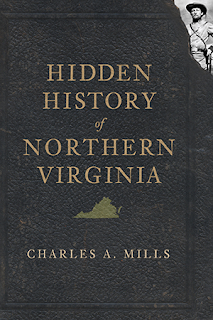America entered
World War I in April, 1917. Told to expand its training capabilities, the U.S. Marine
Corps began inspecting promising sites in the spring of 1917. Some five thousand acres along Quantico Creek
in Prince William County, Virginia, were leased from an ailing development
company which had been promoting the area for recreation. The area was largely uninhabited. There
was an officially incorporated town, a shipyard, and a small hotel that had been
built to attract tourists. The first
Marine contingent to arrive consisted of ninety one enlisted men and four
officers. Soon thousands would come
pouring in for training. There were not
enough barracks, and the troops did their laundry in the river. Troops unaccustomed to a Virginia summer
complained, “Quantico was hotter than a pistol and muddier than a pigsty”.
Aviation first arrived at Quantico in July
1918, when two kite balloons were flown to spot artillery fire. Soon four
seaplanes were assigned to Quantico. Naval aviation actually began in 1911,
only six years after the Wright brothers’ first successful flight, with a
Congressional appropriation of $25,000.
This money went for the purchase of three aircraft, one from the Wright
brothers themselves. The first Marine
aviator (he was the fifth Naval aviator) was 1st Lt. Alfred A.
Cunningham. On December 7, 1917, the
Marine aviators were ordered overseas to fight in France, and to take part in
anti-submarine warfare. In 1919, a flying
field was laid out at Quantico and land leased to accommodate a squadron
returning from combat in Europe. The facility was later named Brown Field, in
memory of 2nd Lt Walter V. Brown, who lost his life in an early accident at that
location.
By 1920 Quantico Marine Corps Base had
become a permanent fixture in Northern Virginia, as Marine Corps schools were
founded and the Corps embarked on the mission to, “make this post and the whole
Marine Corps a great university."




No comments:
Post a Comment